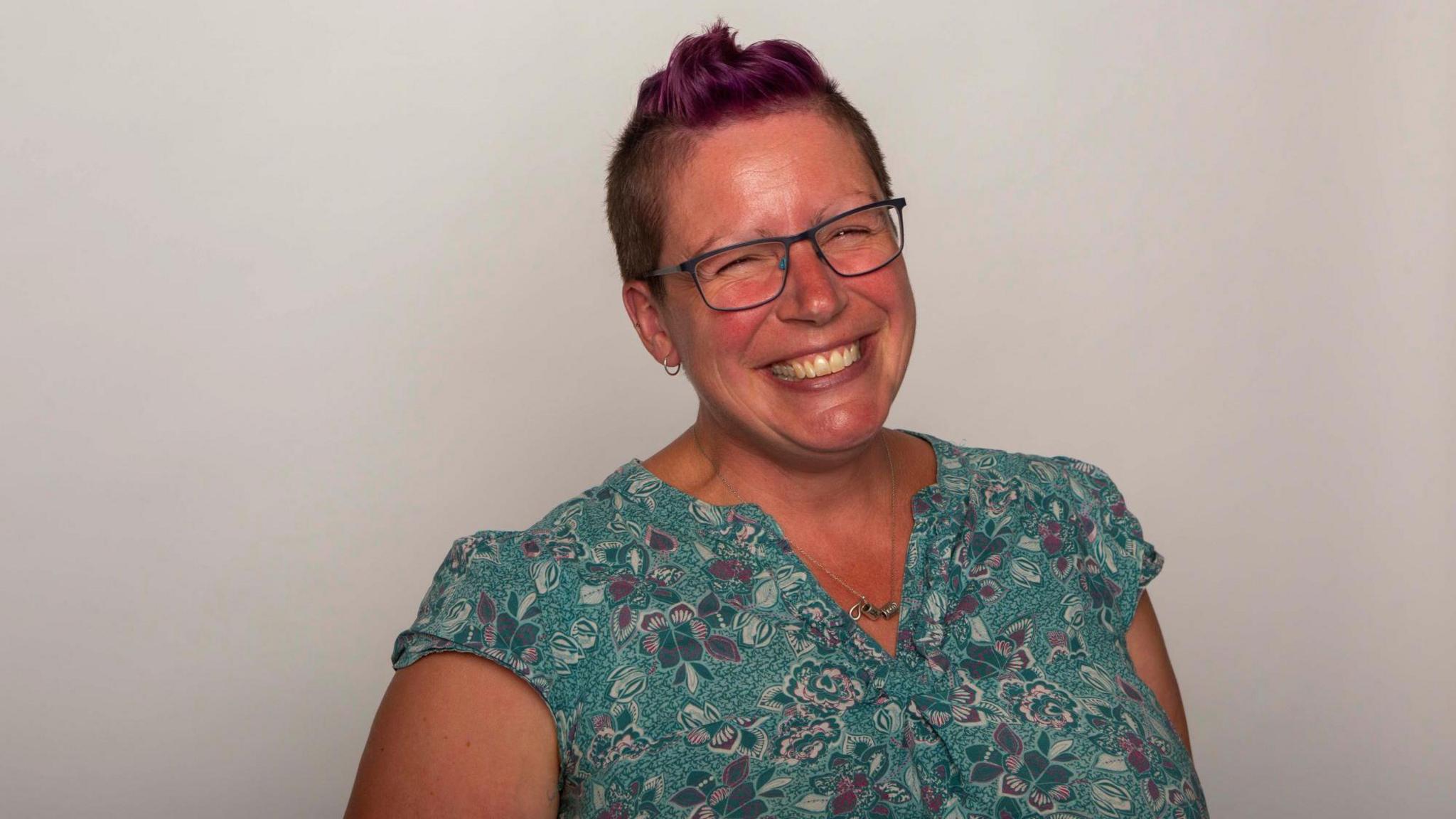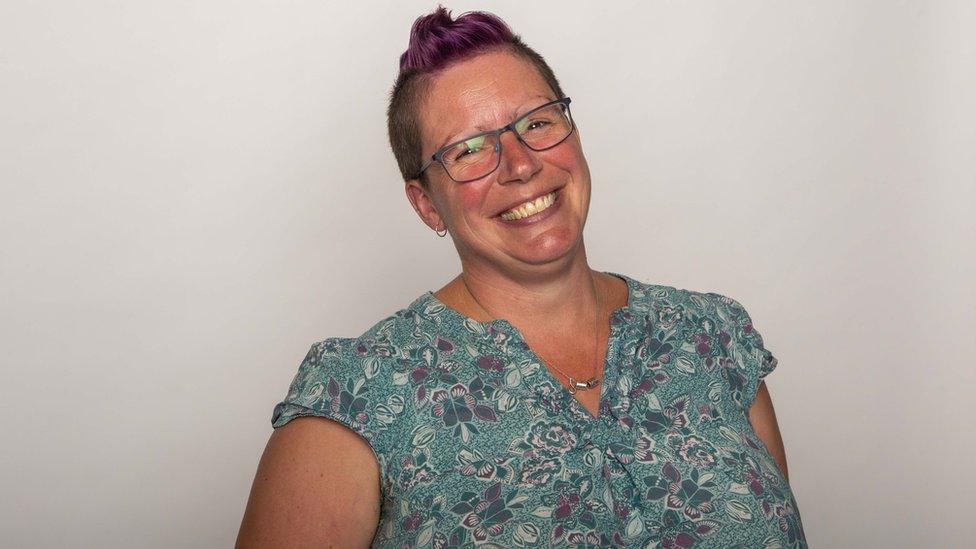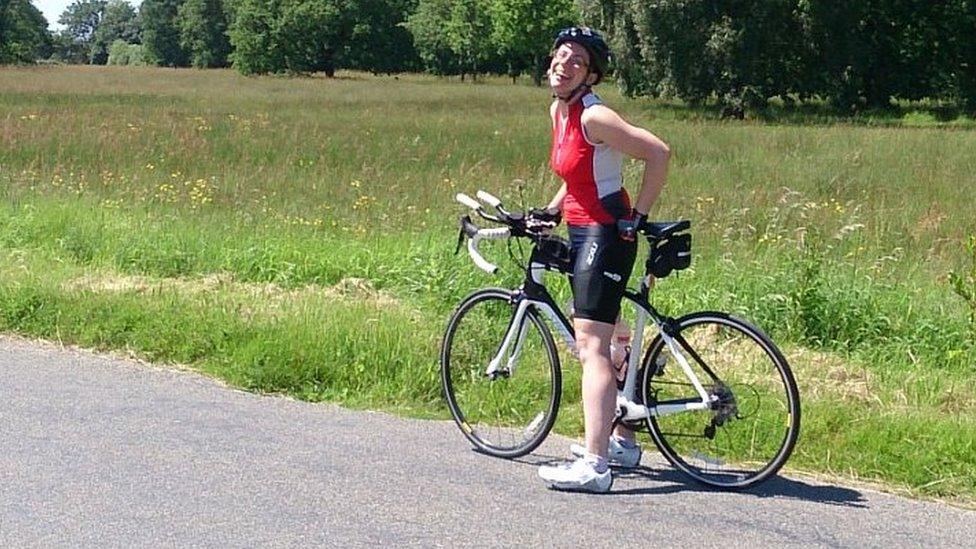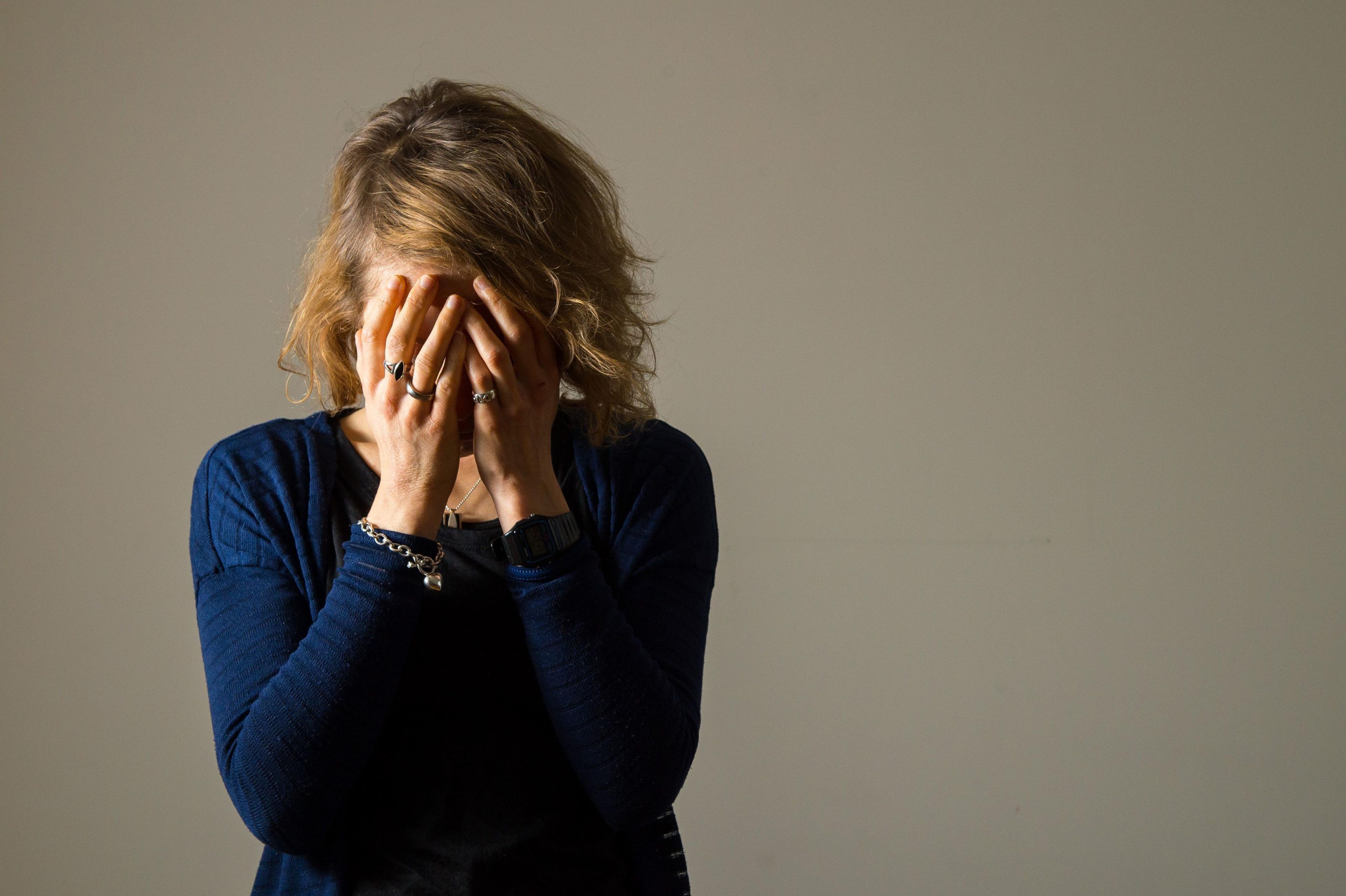Perimenopause support group hits 100,000 members

Personal trainer Emily Barclay was 39 when she started experiencing perimenopause symptoms which went undiagnosed for almost four years
- Published
A woman who set up a perimenopause support group after her own struggle to get a diagnosis has seen membership rise to 100,000.
Emily Barclay set up Perimenopause Hub Facebook page after it took her almost four years to understand her irregular periods, crushing fatigue and mood swings were all to do with being perimenopausal.
After her diagnosis, Ms Barclay, from Earsham in Norfolk, went online to see if she could find advice from others.
She said: "I just could barely find anything. I found one or two things but they didn't fit what I needed, so I set it up."
According to the NHS website, external, the menopause is when your periods stop due to lower hormone levels. It can cause symptoms like anxiety, mood swings, brain fog, hot flushes and irregular periods.
Perimenopause is when you have symptoms of menopause but your periods have not stopped.
For most women in the UK, the average age of reaching the menopause is 51, but decreasing levels of oestrogen can cause perimenopausal symptoms much earlier.
Kind moderators
The group's success has surprised her. "I expected at most to help maybe 2,000 people," she said.
"Now we've got over 100,000 and it's just amazing."
She put the rising numbers to "an amazing team of moderators who make sure that it is always a safe and kind place for people".
Ms Barclay said the aim was to ensure women do not feel alone, especially in perimenopause when hormonal changes begin in a woman's body.
Despite a welcome growth in discussions about the menopause in the media, and more celebrities like Davina McCall making programmes about this issue, Ms Barclay said more education was required.
The personal trainer said: "It still isn't commonplace to understand what's going on.
"You know, if you compare it to puberty, which would be the easiest comparison, every single person knows that when a child hits 10 or 11, stuff's going to start changing.
"But at the other end of the scale, we don't."
More education and health checks
Ms Barclay said hormonal changes were more than your periods ending and maybe a few hot flushes.
"That's certainly what I always thought it was, and unfortunately, that lack of education stretches to the medical community as well," she added.
"Our parents, our mothers, didn't talk about it because there was still that taboo.
"You heard of women being sent off to asylums and sanatoriums and things.
"So we've come a long way forwards. But we're by no means there."
She has called for hormonal checks to be carried out for women at about the age of 35, in the same way women are encouraged to get an overall health check-up at 45.
Ms Barclay said informing women about what might take place in their bodies would also save on NHS resources.
Follow Norfolk news on Facebook, external, Instagram, external and X, external. Got a story? Email eastofenglandnews@bbc.co.uk, external or WhatsApp us on 0800 169 1830
Related topics
- Published16 May 2021

- Published13 March 2020

- Published4 May 2024
